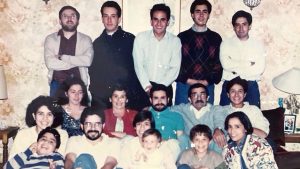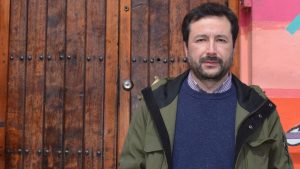Yanez, Claudio. “It Took Me 20 Years to Talk About My Childhood.” BBC News, 2 October 2017
WARNING!!! This article talks about sexual violence
http://www.bbc.com/news/magazine-41246340
This article does not have an author because it is from an interview over the radio that someone later wrote what was said. This article is about Claudio Yanez, a man who was put into a public care center in Chile when he was ten. The idea behind the public care center is comparable to an orphanage. One day a public care center official took him to a public care center, but his life would have been better on the streets. At these places the children are physically and sexually abused. Corporal punishment is used quite fondly. The children at public care centers do not go to school. The day to day life at the public care centers causes the children loose sympathy. If the boys complain to their social workers they are only treated worse, so they do not complain. Luckily for Yanez he was recommended for a psychological test and was discovered to have a high IQ, so he was permitted to go to school. Yanez ran away and a kind family “took [him] under their wing.” At this time, he started working at a hotel where he eventually told his story to a family. This family took him in and he considers them family to this day. He decided to speak out because a report came out last year that 1,300 children died in the custody of these public care centers.

Yanez explains that he also decided to speak out because he is currently a civil engineer and is therefore considered a high ranking official. He expected his friends and colleagues to be unaccepting, but was pleasantly surprised in their support. He explains that Chile is a much more accepting place then he was a kid.
Yanez is speaking out, so more people realized how horrible the public care system is in Chile. Yanez’s goal is having reform in the Chilean system. This article is written in the first person (because Yanez said it) and this makes the article devastating to read. The effect of having it be in the first person is overwhelming when Yanez describes how alone he felt and how emotionally stinted he and the other boys became. The mindset these children have is something I’ve only read about in the Nazis’ death camps. In the death camps the survivors eventually stopped feeling emotional pain because it became a part of their everyday life and if not the victim then it would be them.
It is safe to say this is an experience Yanez will never forget and it is now a part of his identity. Like Cabeza de Vaca, Yanez went through a traumatic experience and he figured out who he was. He mentions how he learned to only rely on himself because he could not trust the other children or his social worker. Yanez also threw himself into his school-work because it was his only escape he had and this lead him to be the civil engineer he is today. Yanez now has a nonprofit charity that advocates for children in the system. Without being in the system he would not have a charity trying to help the children. Having the experience of being in the public care center has shaped his identity. He is a civil engineer, he is self-reliant, and he has a charity, all because being in the public care center shaped who he is as a person. Like Cabeza de Vaca, Yanez learned from his horrible experience and without it he wouldn’t be who he is today, therefore being in a public care center is a part of his identity, for better or for worse.

Images copyright Claudio Yanez Image caption Claudio’s new family: He is the boy with the big smile at the right of the middle row


